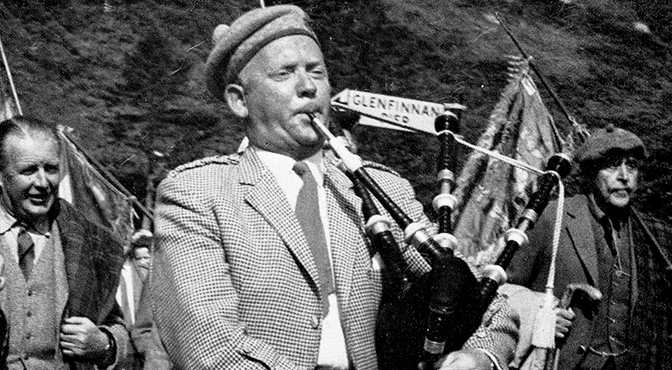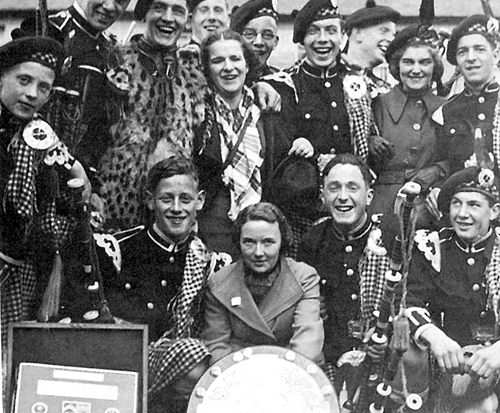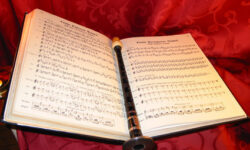
We are grateful to reader Jack McLachlan for forwarding this recording of John MacFadyen discoursing on the adjudication of piping and, briefly, pipe bands.
Jack writes: ‘The recording was made by John Davidson, Parkview, Johannesburg, at his home on 12th August 1973. John MacFadyen was visiting to run a piping school for the Scottish Piping Society of the Witwatersrand and gave this lecture the week before it was due to start. Unfortunately the beginning of the lecture has been cut-off but there is still some excellent content.’
Younger readers may be unaware of the huge influence John MacFadyen (1926-1979) had on piping during his lifetime. A multiple winner of all the top awards, he was deeply involved with the College of Piping, the Institute of Piping and the Piobaireachd Society.
From a piping family (brothers Iain and Duncan were also top soloists), he played in the Glasgow Shepherds band as a boy and in later life had lessons from RU Brown, Balmoral, among others.
His piping was characterised by a boldness of approach, confident and in command. He produced two excellent volumes of light music.

In this first part of the recording, John touches on many important aspects of the judging of piping. He advises mentoring (a new programme was recently approvd by the Solo Piping Judges Association) to blood judges.
Judges should get plenty of rest the night before a competition – it can be physically demanding. Pipers work hard; don’t insult them by turning up bleary-eyed.
If judging set tunes adjudicators must be completely familiar with all the tunes on the list as well as the different settings that may be offered.
Judges should be aware of the rules of each competition over which they preside and be prepared to offer advice if asked for it by the promoter. The judge is, after all, in a position of authority.
Judges should always find out who they are judging with before accepting an engagement and decline if they know they will not see eye to eye with a particular individual.
Judges should avoid false camaraderie with pipers, keping things formal on all occasions. A polite welcome and a re-iteration of the chosen tune(s) is all that is required at the bench.
It is impossible to eliminate bias.
Listen to the interview:

















One of my favourite ceol mor tunes is Rory MacLeod’s Lament. I happen to have discovered a few monts ago a recording of the same tune played by John MacFadyen at the Silver Chanter in 1969. I am really impressed by the way this great piping master treats the tune, specially variation 1. I had never heard it that way before. John MacFadyen, for me anyway, gives here a really great tune and produces in my heart a soul a real emotion. I never got in a competition where this wonderful tune is given: https://www.youtube.com/watch?v=9Z1rrPoI_PY